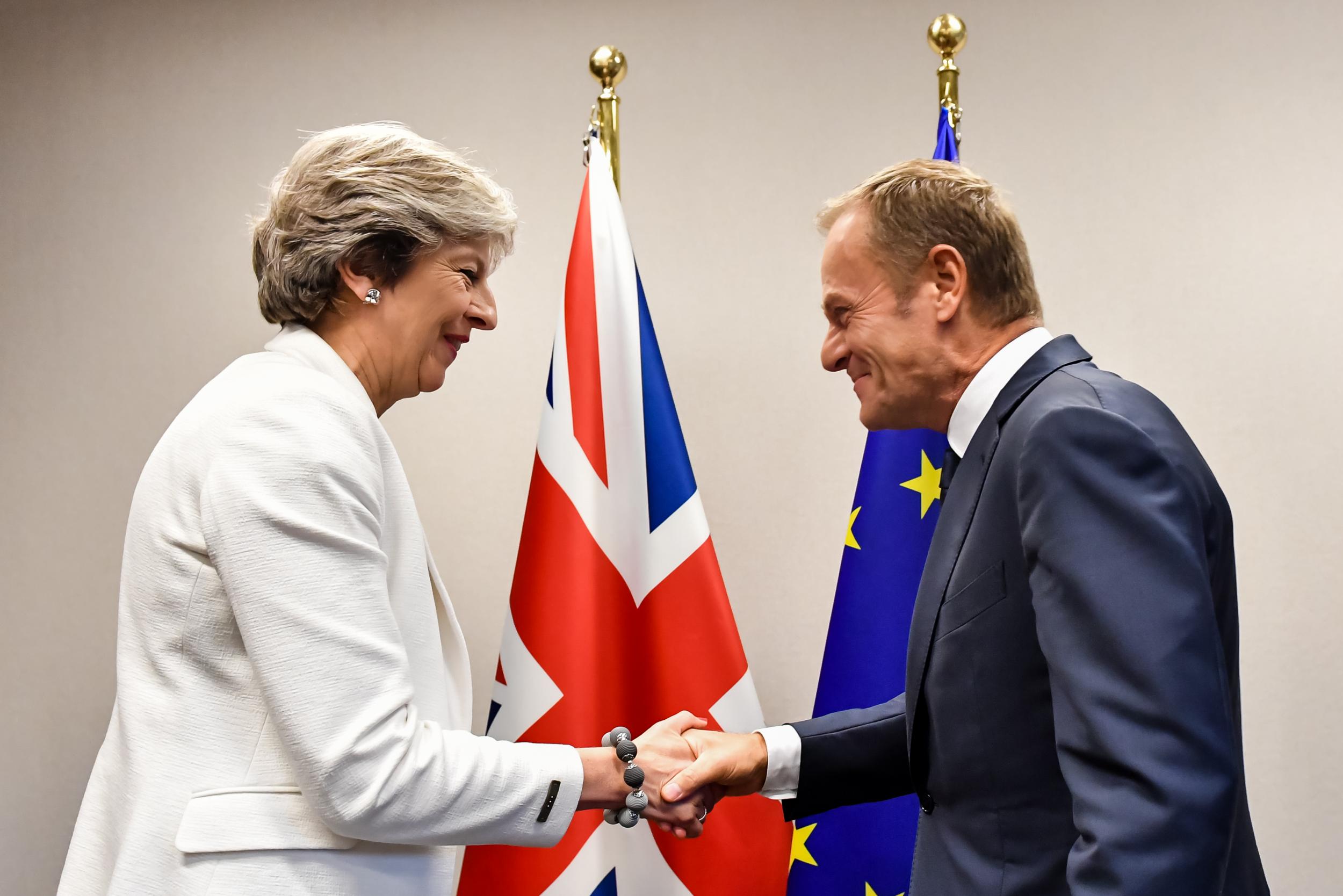Theresa May has handled Brexit about as well as it could be handled – she will cling on to power
This is not to say that Brexit itself is going well, but that any country wanting to leave the EU would be in an inherently weak bargaining position. She has played a weak hand with some skill


The usual pattern is for European negotiations to run late into the night, long after the deadline, and then for a deal to be done. Each leader claims victory to their own country’s journalists and everyone calms down until the next crisis.
That’s the usual pattern. Sometimes it doesn’t work out like that, such as the moment in 2011 when David Cameron found himself after 10 hours of overnight talks saying that the United Kingdom was using its veto to stop an EU fiscal pact. He seemed to have taken himself by surprise, assuming that the others would compromise.
So it could all go wrong for Theresa May in the next few weeks. Donald Tusk, the EU president, gave her until Monday 4 December to finalise her proposals. Then EU leaders have to decide at the summit 10 days later if “sufficient progress” has been made for the next stage of the Brexit talks to start.
This time it is the UK that is keen to do a deal, and the other countries that have to be convinced. In 2011, it was the eurozone countries that wanted a deal to prop up the currency, and we British didn’t want to end up paying for it. Cameron’s veto didn’t make much difference, because the other countries (bar the Czech Republic) went ahead with their own deal without us. The main effect of the veto was a temporary boost to Cameron’s popularity back home.
Now the tables really have been turned. Other leaders are well aware of the benefits to them domestically of saying no to the troublemaking British. This is true in Ireland, where Leo Varadkar’s minority government could be forced at any moment to hold an early election. He does not want to look like a soft touch.
This pinch-point in the Brexit talks is also Ireland’s moment of maximum leverage. The decision on whether to move to the second stage of the negotiations requires all EU countries to agree. (This is important because the final decision on the UK’s exit deal could be taken by the EU’s system of Qualified Majority Voting, QMV, which requires the support of 15 of the 27 EU states representing 65 per cent of the EU27’s population. That means that Ireland has a veto now, which it may not have at the end of the talks. This being the EU, it is more complicated than that. The terms of exit could be decided by QMV, but the transition period and the future relationship require unanimity – so the EU is likely to decide that the whole thing needs to be unanimous.)
The problem for Varadkar is that Ireland’s choice is similar to Britain’s. The Irish can either have a deal that they don’t like, because it would mean some kind of border checks between north and south, or they can have no deal at all, which would definitely mean a hard border.
So, who knows? Ireland should agree to move onto the next stage, but this is politics not mechanics. The same tension, at a lower intensity, runs through the thinking of all the other leaders: how hard do they want to make it for Britain?
They are also worried, apparently, about who they would end up negotiating with if Theresa May falls. There is no harm in their worrying about the prospect of having to negotiate with Boris Johnson, if that means they are slightly more likely to give ground to May.

But I don’t think it is going to happen.
Even if May fails to achieve breakthrough in Brussels in mid-December, I doubt that it would bring her down. It would be bad, causing another three months’ delay, but no one expects a “good” Brexit deal any more, do they? Would the Cabinet and Conservative MPs get rid of her? I don’t think so.
This is an unfashionable opinion, I know, but Theresa May has handled Brexit about as well as it could be handled. This is not to say that it is going well, but that any country wanting to leave the EU would be in an inherently weak bargaining position. She has played a weak hand with some skill, and held a divided party together.
If May comes away from the EU Council empty-handed, the question the Conservative Party has to ask itself is: who could do better? Although a minority of Tory MPs were Leave voters in the referendum – 43 per cent – it wouldn’t be possible for another Remainer such as Amber Rudd or Philip Hammond to do it. Of the Leavers, it certainly could not be Boris “Busted Flush” Johnson. Nor Michael “Economicky Words” Gove.
The only one it could be is David Davis. If in the next few days he broke with May, saying she was prepared to concede too much, he could have some credibility. But again, we would be straight into “bad deal versus no deal” territory. Why would a tougher negotiating stance secure a better deal?
We are still where we were at the start of this process. We will get approximately nothing out of these negotiations, except what the other EU countries are prepared to concede in their own interest. The only question is how we manage their perceptions of their interests to maximise the least worst deal for us. Even if she fails in Brussels next month, of the possible Conservative candidates to be prime minister, Theresa May is still best placed to deliver the least worst Brexit.
Join our commenting forum
Join thought-provoking conversations, follow other Independent readers and see their replies
Comments
Bookmark popover
Removed from bookmarks